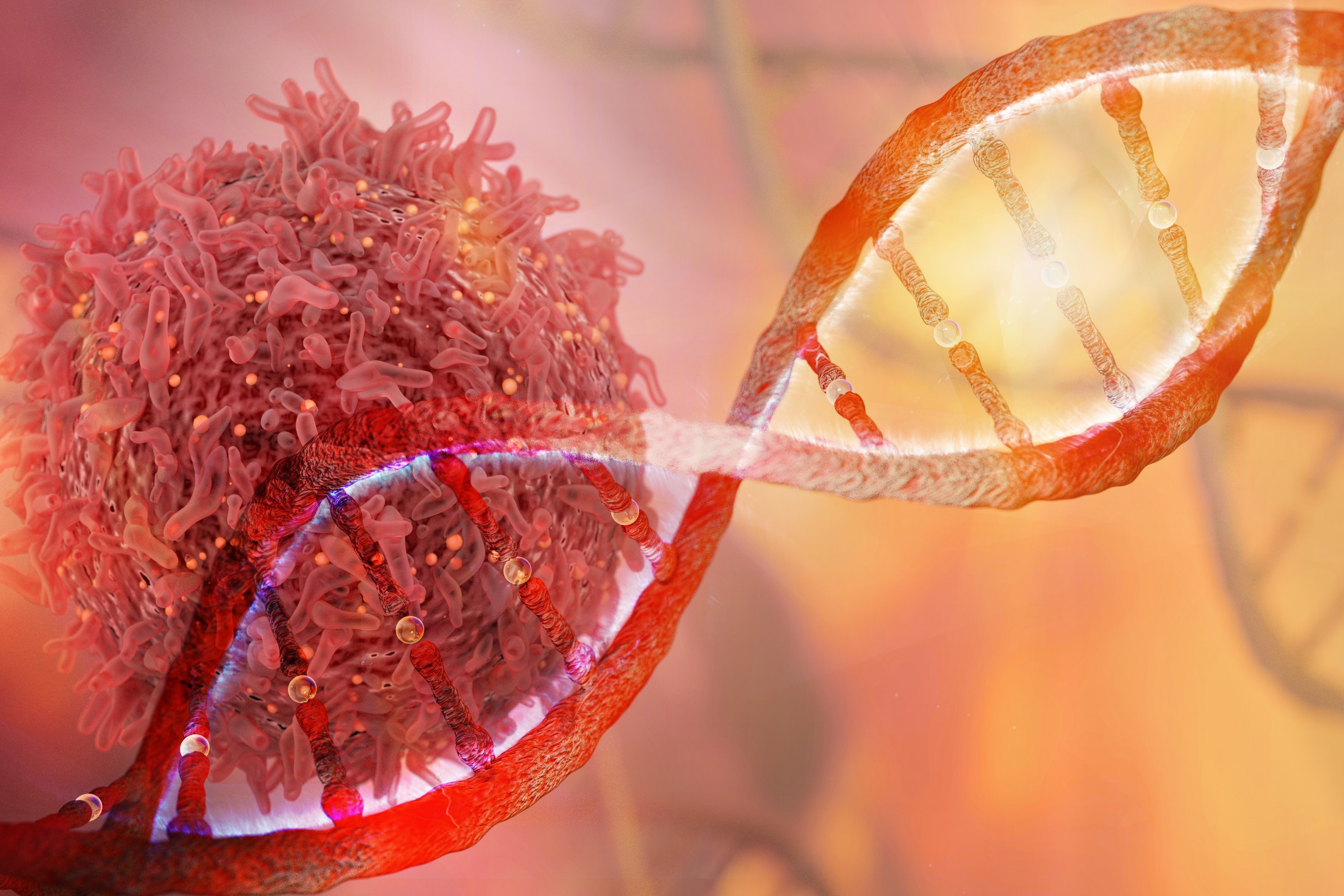
(Vienna, 30-01-2023) The cancer therapy of the future is increasingly customised in the sense of precision medicine. The basis for this is comprehensive "profiling" of each individual tumour, which extensively analyses the genetic make-up of the individual tumour at molecular level. This "comprehensive cancer profiling" is already being used at the Comprehensive Cancer Center Vienna (CCC) of MedUni Vienna and Vienna General Hospital for all types of cancer and permits the identification of changes in a tumour that argue for or against the use of a particular therapy. Three concrete examples show how CCC science can prolong and improve life. World Cancer Day is on 4 February 2023.
Next Generation Sequencing (NGS) allows to investigate a multitude of genes simultaneously, but also different changes, so-called mutations, in a tumour. This is also referred to as "comprehensive cancer profiling". In this process, DNA and RNA molecules from tumour cells are isolated and, by subsequent sequencing, the genetic code is read and any errors are detected by bio-informatics comparison with healthy human gene sequences. These complex methods allow to detect and comprehensively investigate the genetic changes in tumours in order to be able to identify all therapy options potentially available. "Comprehensive Cancer Profiling is rapidly developing increasing both the demand for it and its use. On the one hand, we are continuously identifying additional neoplastic diseases with specific mutations that can be treated and, on the other hand, we see mutations in tumours that we know from another type of tumour and for which there is a recognised therapy that we can apply," explains Renate Kain, Head of the University Department of Pathology at MedUni Vienna/AKH Vienna and Deputy Head of the Comprehensive Cancer Center (CCC) Vienna.
Liquid Biopsy: from research to routine diagnostics for lung cancer
NGS uses a technology that is becoming increasingly sensitive, i.e. it allows mutations to be detected even in small amounts of DNA. It also allows to detect tumour DNA and the changes that occur in it in cell free serum or plasma. This can be used, for example, to monitor the recurrence of a tumour disease. The use of liquid biopsy has developed very rapidly from its use in research to its use in routine diagnostics and is used for lung cancer, among other cases, at MedUni Vienna's Department of Pathology.
Tumour board for precision medicine
Molecular methods make it possible, for example, to identify the changes in a tumour that speak for or against the application of a certain therapy and thus to apply it in a targeted manner. In the Precision Medicine Tumour Board, one of 25 tumour boards at CCC Vienna, all possible examinations, their results and treatment options are discussed and the recommendations followed. This is now standard in advanced or metastastatic tumour disease or those with unknown primary carcinoma.
Example: Avatars in use for children with brain tumours
Precision medical therapy approaches are playing an increasingly important role for children with brain tumours. By way of close cooperation between researchers and physicians, new models of rare brain tumours are developed from tumour samples at the CCC Vienna. These "avatars" make it possible to test improved therapies in the laboratory and subsequently improve treatment for these aggressive tumours. For example, for ependymoma, a type of brain tumour that mainly affects children, the FGF receptor was identified as a promising new therapeutic approach.
Example: Radiobiological research as a driver for improving prognosis in cervical cancer
One example of the establishment of a new therapy standard based on the targeted use of repetitive imaging by means of magnetic resonance is image-guided adaptive brachytherapy, i.e. internal radiation using radiation applicators inserted for a short period of time, for locally advanced cervical carcinoma. This project, initiated and led by the University Department of Radiation Oncology at the Certified Gynaecological Cancer Centre of CCC Vienna, personalises the therapy of cervical carcinoma within the framework of an international consortium with 24 participating centres in Europe, Asia and North America. So far, a 15% improvement in local tumour control has been shown: In 92% of the women, no tumour could be detected in the uterine area five years after treatment. Further development of this treatment will consist of risk-based personalisation.
Example: Preclinical research identifies promising drug in bladder carcinoma
Promising research results have recently been achieved in bladder carcinoma, one of the most common types of cancer. An extensive screening with over 1,700 chemical substances led to the identification of a large number of new potential therapies. The extraordinarily strong inhibitory effects of a chemotherapy, which has so far been used exclusively for the treatment of leukaemia in children, were verified in various cell cultures and models. Corresponding clinical studies with patients are in progress.
The therapies of the future today
The aim of translational science is to generate scientific findings that directly prolong and/or improve patients' lives. The CCC Vienna networks experts from MedUni Vienna and Vienna General Hospital who are involved in the research and treatment of cancer, bringing science directly to the patient's bedside. People with cancer can thus benefit from the therapies of the future today. At the same time, the challenges in the clinic represent new starting points for research-guiding questions. The central drive of the close interdisciplinary cooperation in science, education and therapy is the improvement of treatment options and the quality of life for those affected at all times. The CCC's current research priorities are translational research and immuno-oncology. In 2021, 1,724 cancer-related publications were produced at MedUni Vienna (source: pubmed).
In the 25 tumour boards of CCC Vienna, experts discuss the optimal therapy for each individual patient on an interdisciplinary basis. In 2021, 6,562 patients were presented to one of the tumour boards, of which 4,559 were new diagnoses.